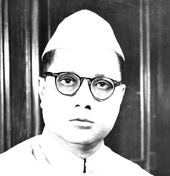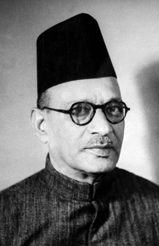Related Research Articles

Madhya Bharat, also known as Malwa Union, was an Indian state in west-central India, created on 28 May 1948 from twenty-five princely states which until 1947 had been part of the Central India Agency, with Jiwajirao Scindia as its Rajpramukh.

Vindhya Pradesh was a former state of India. It occupied an area of 23,603 sq. miles. It was created in 1948 as Union of Baghelkhand and Bundelkhand States, shortly after Indian independence, from the territories of the princely states in the eastern portion of the former Central India Agency. It was named as Vindhya Pradesh on 25 January 1950 after the Vindhya Range, which runs through the centre of the province. The capital of the state was Rewa. It lay between Uttar Pradesh to the north and Madhya Pradesh to the south, and the enclave of Datia, which lay a short distance to the west, was surrounded by the state of Madhya Bharat.

Shankar Dayal Sharmapronunciation (help·info) was the ninth President of India, serving from 1992 to 1997. Prior to his presidency, Sharma had been the eighth Vice President of India, serving under R. Venkataraman. He was also the Chief Minister (1952–1956) of Bhopal State, and Cabinet Minister (1956–1967), holding the portfolios of Education, Law, Public Works, Industry and Commerce, National Resources and Separate Revenue. He was the President of the Indian National Congress in 1972–1974 and returned to the Government as Union Minister for Communications from 1974 to 1977.
The 14th Lok Sabha was convened after the 2004 Indian general election held in four phases during 20 April – 10 May 2004, which led to the formation of first Manmohan Singh ministry (2004–2009). Indian National Congress-led United Progressive Alliance won 62 more seats than previous 13th Lok Sabha. The Lok Sabha is the lower house in the Parliament of India. 8 sitting members from Rajya Sabha, the Upper House of Indian Parliament, were elected to 14th Lok Sabha after the 2004 Indian general election.

Bhogaraju Pattabhi Sitaramayya was an Indian independence activist and political leader in the state of Andhra Pradesh.

Kyasamballi Chengaluraya Reddy was the first Chief Minister of Karnataka. Reddy later served as the Governor of Madhya Pradesh.
Kunwar Digvijay Singh, popularly known as "Babu", was an Indian field hockey player. He was born in Barabanki, Uttar Pradesh. He is widely known for his mesmerising passing ability and is considered by many to be the greatest dribbler of the game comparable only to Dhyan Chand.

General elections were held in India between 25 October 1951 and 21 February 1952. They were the first elections to the Lok Sabha after independence in August 1947. It was conducted under the provisions of the Indian Constitution, which was adopted on 26 November 1949. Elections to most of the state legislatures took place simultaneously.

Suresh Pachouri is an Indian politician and a member of the Indian National Congress from Madhya Pradesh. He had served as union minister of state in the Ministry of Defence (1995-1996) and in the Ministry of Personnel, Public Grievances and Pensions and Ministry of Parliamentary Affairs (2004-2008) in the Government of India.
Tribhuvan Narain Singh was an Indian politician and Chief Minister of Uttar Pradesh. He remained Chief Minister from 18 October 1970 till 4 April 1971. Singh later served as Governor of West Bengal from the late 1970s until 1981. He was born and died in Varanasi, Uttar Pradesh. He also served as the Chairman of the Public Accounts Committee and as Union Minister of Industry and Steel.

The Uttar Pradesh Legislative Assembly is the lower house of the bicameral legislature of Uttar Pradesh. There are 403 seats in the house filled by direct election using single member first-past-the-post voting system.

Ram Subhag Singh was an Indian politician who was a member of the Indian National Congress. He served as a member of the 3rd and 4th Lok Sabha for Bikramganj and Buxar in the Bihar state of India in 1962 and 1967, respectively. After the split in the Congress party in 1969, he stayed with the Indian National Congress (Organisation). He was briefly the leader of the opposition in the Lok Sabha in 1969. He participated in the Indian independence movement. He was a cabinet minister in the Union Government led by the Congress party.

Virendra Verma was an Indian politician, born in Shamli, Uttar Pradesh. He served as the Governor of Punjab and the Administrator of Chandigarh (1990) as well as the Governor of Himachal Pradesh (1990–1993).
Ganpatrao Devji Tapase was an Indian politician, an Indian independence activist and later a leader of the Indian National Congress political party in Maharashtra.

Nawab Mehdi Nawaz Jung was an Indian bureaucrat and was Secretary to the Executive Council during the Nizam rule. He also served as the Governor of Gujarat from 1960-1965.
Mangru Ganu Uikey was an Indian politician and Social worker, who devoted his entire life working for the upliftment and welfare of tribal people. He served as a Member of Parliament in the 1st, 2nd, 3rd, 4th and 5th Lok Sabha of the Govt of India. He was awarded with the honour of "Padma Shri" in 1969 by the Government of India for his outstanding contribution in the field of social work.
Omem Moyong Deori was an Indian politician from Arunachal Pradesh belonging to Indian National Congress. She was a member of the influential All India Congress Committee (AICC) for many years. Considered one of the most powerful northeastern leaders in the Indian National Congress, she served as President of Arunachal Pradesh Pradesh Congress Committee. Deori was believed to have had very close relations with Indira Gandhi.

Hafiz Mohamad Ibrahim, also spelled as Hafiz Muhammad Ibrahim (1889-1968), was a leader of Indian National Congress. He was governor of Punjab, India in 1965. Ibrahim was a member of Rajya Sabha from 1958 to 1962 and served as union minister of power and irrigation. He was leader of the Rajya Sabbha from 1961 to 1963. He served as Communication and Irrigation for United Provinces (1937–50)